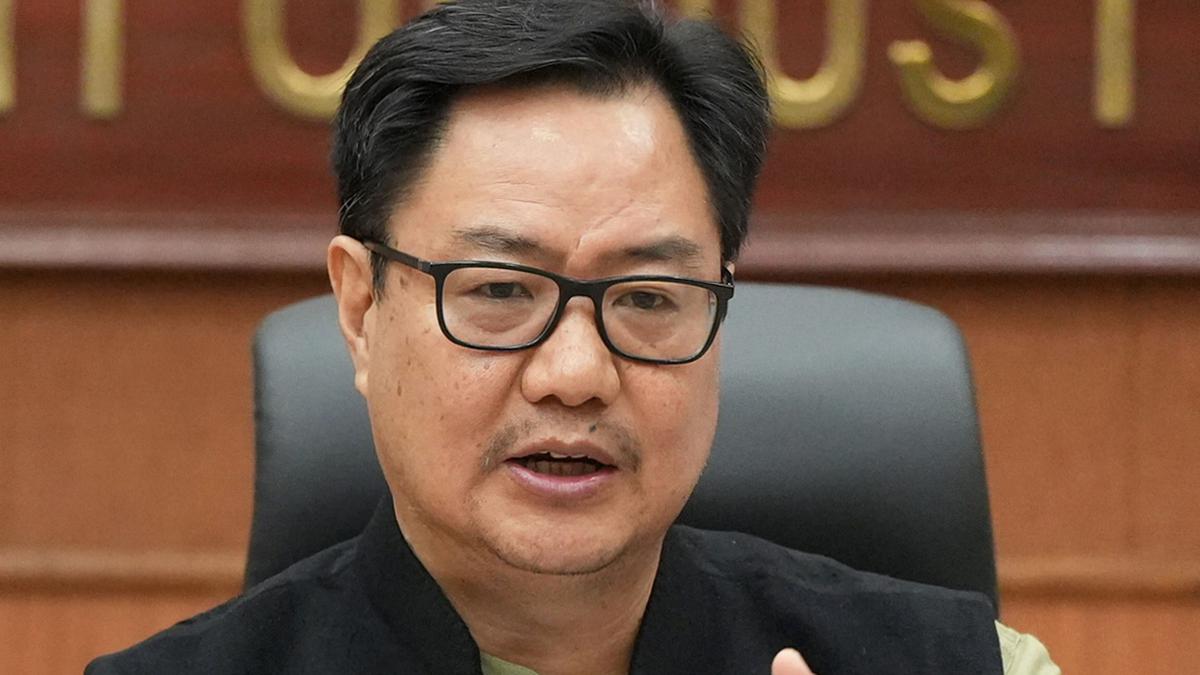A Presidential Reference Bench of five judges headed by Chief Justice of India B.R. Gavai observed on Tuesday (August 19, 2025) that the Supreme Court’s move to grant deemed assent to 10 crucial Tamil Nadu State Bills may have been a way to resolve an “egregious situation” created by the Tamil Nadu Governor who had been sitting over them since 2020.
Supreme Court hearing on Presidential Reference updates on August 19, 2025
The five-judge Bench found the facts of the Tamil Nadu case “glaring” to say the least. “Were the Bills pending since 2020?” Justice Surya Kant asked Attorney General R. Venkataramani.

The Attorney General replied that the facts in the Tamil Nadu case may be correct, but there were reasons the Governor had kept the Bills pending. He said he did not want to get into the facts.
“Is it because the facts are so glaring that you do not want to get into them?” Chief Justice Gavai asked.
Justice P.S. Narasimha said the facts of the Tamil Nadu case did not consist of any “pudding” and were stark in themselves.
Solicitor General Tushar Mehta, appearing for the Union government, seconded Mr. Venkataramani’s submission that a Reference Bench need not get into the facts of the Tamil Nadu case, but merely answer the questions raised by the President.
The role of the Reference Bench was to maintain the balance envisioned by the Constitution, Mr. Mehta submitted.
But Justice Kant persisted to ask what a Constitutional court was expected to do if the facts were as obvious as those found in the Tamil Nadu case.

“It seems such an egregious situation came into existence in the Tamil Nadu case, that the Supreme Court was compelled to handle the situation and resolve the issue. The conclusion was not meant to act as a precedent,” Justice Narasimha referred to the circumstances which had led to the April 8 judgment.
The oral remarks from the Bench came on the first day of hearing the Presidential Reference which has questioned the power of the apex court to impose three-month deadlines on the President and Governors to deal with State Bills which come to them for assent.
The reference was issued by the President under Article 143 of the Constitution merely a month after a two-judge Bench of the Supreme Court, in a judgment in the Tamil Nadu Governor case on April 8, plugged a Constitutional silence by fixing specific time limits for Governors and the President to assent, withhold approval or reserve State Bills for further consideration under Articles 200 and 201.
The Division Bench headed by Justice J.B. Pardiwala had invoked Article 142 of the Constitution to grant ‘deemed assent’ to Tamil Nadu’s State Bills. It had held that laws which remain pending with the President and Governor beyond the specified three-month deadline would be deemed as approved.

On Tuesday (August 19, 2025), Mr. Venkataramani argued the court could not have used its extraordinary powers under Article 142 to supplant substantive law and “build a new edifice where none existed” in the Tamil Nadu case. The top law officer submitted the Constitution did not impose any time limits on the President and Governors while dealing with State Bills.
He contended that the power of the apex court under Article 142 cannot exceed the power of its creator (the Constitution).
Mr. Venkataramani urged that the judiciary must not violate the Basic Structure of the Constitution and take over Executive and Legislative functions by granting ‘deemed assent’ to State Bills.



.png)
.png)
.png)
















 1 hour ago
4
1 hour ago
4








 English (US) ·
English (US) ·